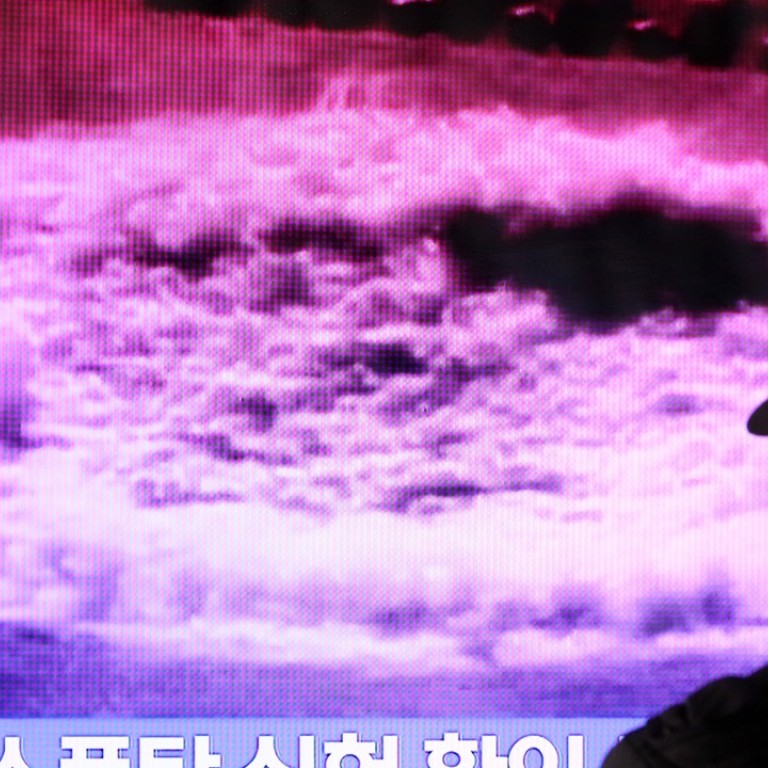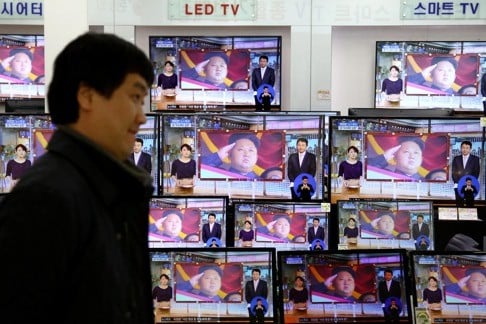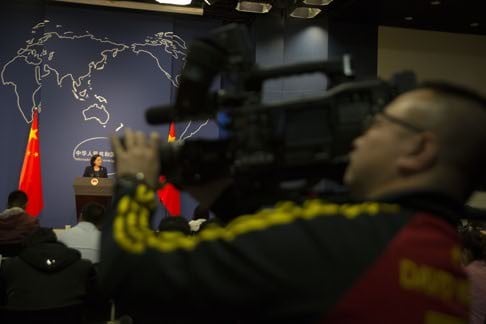
Does North Korea’s latest nuclear test highlight Beijing’s waning influence?
How China responds to the reported testing of a hydrogen bomb in North Korea will demonstrate what role they continue to play with the rogue state
North Korea may have explained Wednesday's announced hydrogen bomb test as a response to US “hostility”, but experts say it may more accurately reflect deteriorating relations with China.
The question now is how Beijing will respond: not by abandoning its troublesome ally, experts agree, but perhaps by supporting further sanctions against it. Whether that would have any effect is in doubt.
“In a way, this is a protest against Beijing,” said Bo Zhiyue, director of the New Zealand Contemporary China Research Centre at Victoria University of Wellington. “They are saying: 'We can do whatever we want. This shows our independence, and we don't need your approval.' ”
Scientists and officials say the test almost certainly did not involve a hydrogen bomb. But the fourth test of any kind of nuclear device by the isolated country would signal its continuing defiance of the outside world - including China, which has long expressed displeasure with Pyongyang’s nuclear program.

On Wednesday, China's Foreign Affairs Ministry said North Korea had “ignored” objections from the international community to its staging of such tests. “China firmly opposes this,” the ministry said in a statement. “We urge North Korea to fulfill its promise of denuclearisation and stop any actions that would worsen the situation.”
Spokeswoman Hua Chunying said at a regularly scheduled news conference that Beijing had not been warned before the test and would summon Pyongyang’s ambassador in Beijing to lodge a protest. Experts say Beijing’s influence over Pyongyang has diminished since Kim Jong Un took over as North Korea’s leader at the end of 2011 and Xi Jinping became president of China in 2013. The two men have not met since assuming power, with Xi even snubbing his counterpart by visiting South Korea first in 2014.
In October, there was talk of a thaw when Xi sent an envoy to attend a military parade in Pyongyang with a signed letter carrying the Chinese President's “best wishes” to Kim. But relations swiftly turned frigid again in December, after Kim declared that his country had developed a hydrogen bomb. Within 48 hours, a glamorous North Korean girl group, the Moranbong Band, packed up and left Beijing just before a scheduled debut concert there. That was less than a month ago.
“The Moranbong Band incident basically revealed North Korea's intentions, and you could see that communication between China and North Korea is quite bad,” said Xuan Dongri, director of Northeast Asia Studies at Yanbian University in northeastern China. “China and North Korea's understanding of each other is deteriorating further.”
Bo, of Victoria University of Wellington, said a key problem in the relationship has been the centralisation of power in Beijing under Xi. Instead of the multi-faceted policy toward North Korea that prevailed under Xi’s predecessor, Hu Jintao, with some senior leaders advocating engagement and others taking a harder line, Xi is now calling all the shots, Bo said.

Since Xi has not met Kim and has his hands full with domestic and foreign-policy challenges, there is little meaningful dialogue taking place and very little internal debate on how best to influence Pyongyang, Bo added.
“You need to have a connection if you want to convince or persuade the other side,” he said. “If you don't have a connection, where is the leverage?”
Bo said Xi was “caught in a dilemma,” reluctant to hew closer to the U.S. approach of isolating and punishing North Korea but left “powerless” to prevent North Korea’s nuclear program.
Analysts are not predicting a complete breakdown in Sino-North Korean ties. Nor do they foresee North Korea abandoning the nuclear program that has become a key pillar of its regime’s declared legitimacy, at least not soon. But some suggest that this test poses a particular challenge for China.
“Beijing will face increased pressure both domestically and internationally to punish and rein in Kim Jong Un and to ultimately force Pyongyang to give up its nuclear weapons...”
“Beijing will face increased pressure both domestically and internationally to punish and rein in Kim Jong Un and to ultimately force Pyongyang to give up its nuclear weapons,” said Yanmei Xie, senior China analyst with the International Crisis Group in Beijing. “But there is likely to be a repeat of the worn playbook of denunciation, tightening of sanctions and calling for resurrection of the six-party talks.”
North Korea pulled out of those negotiations with South Korea, the United States, China, Russia and Japan over its nuclear program in 2009. On Wednesday, the Chinese Foreign Ministry's spokeswoman, Hua, said the talks were the “only practical and effective way to solve the North Korea problem.”
China is North Korea’s largest trading partner and supplies most of its neighbor’s oil and gas, as well as about half of its foreign aid. But it has been unwilling to pull the plug for fear of toppling the Kim regime.
Paul Haenle of the Carnegie-Tsinghua Centre in Beijing agreed that despite Pyongyang's singling out of the United States, “the real attention is focused on China” and its response. China is likely to move cautiously, he said, but he did not rule out a tougher line from Beijing.
“North Korea's defiance is not only an untenable burden on China's image as a credible and strong leader on this issue, but will also lead to an enhanced U.S. security posture in the region and increased cooperation between the U.S. and its Asia-Pacific allies - not something Beijing wants,” he said.
“I don't think we can overlook the fact that Xi is a new and fundamentally different kind of Chinese leader,” Haenle added, citing Xi's historic decision to meet with Taiwanese President Ma Ying-jeou in November as an example. “While analysts have plenty of evidence to justify their assessments that China won't change course, I think we need to be open to the possibility that China could respond differently this time.”
Meanwhile, in the U.S, presidential candidate Donald Trump has appeared on CNN and said he’s sick and tired of the United States acting as the world’s policeman and that the issue of North Korea is a problem for China to solve.
Shi Yinhong, a professor of international relations at Renmin University of China, said that the test left China no choice but to back further U.N. sanctions against North Korea. But the Crisis Group’s Xie cautioned that nothing would be done that might upset Beijing’s bottom line.
“For Beijing, a nuclear-armed North Korea is uncomfortable and disturbing, but a regime collapse in Pyongyang, leading to mass chaos next door and potentially a united Korean Peninsula with Washington extending its influence northward to China's doorstep, is downright frightening,” Xie said.

